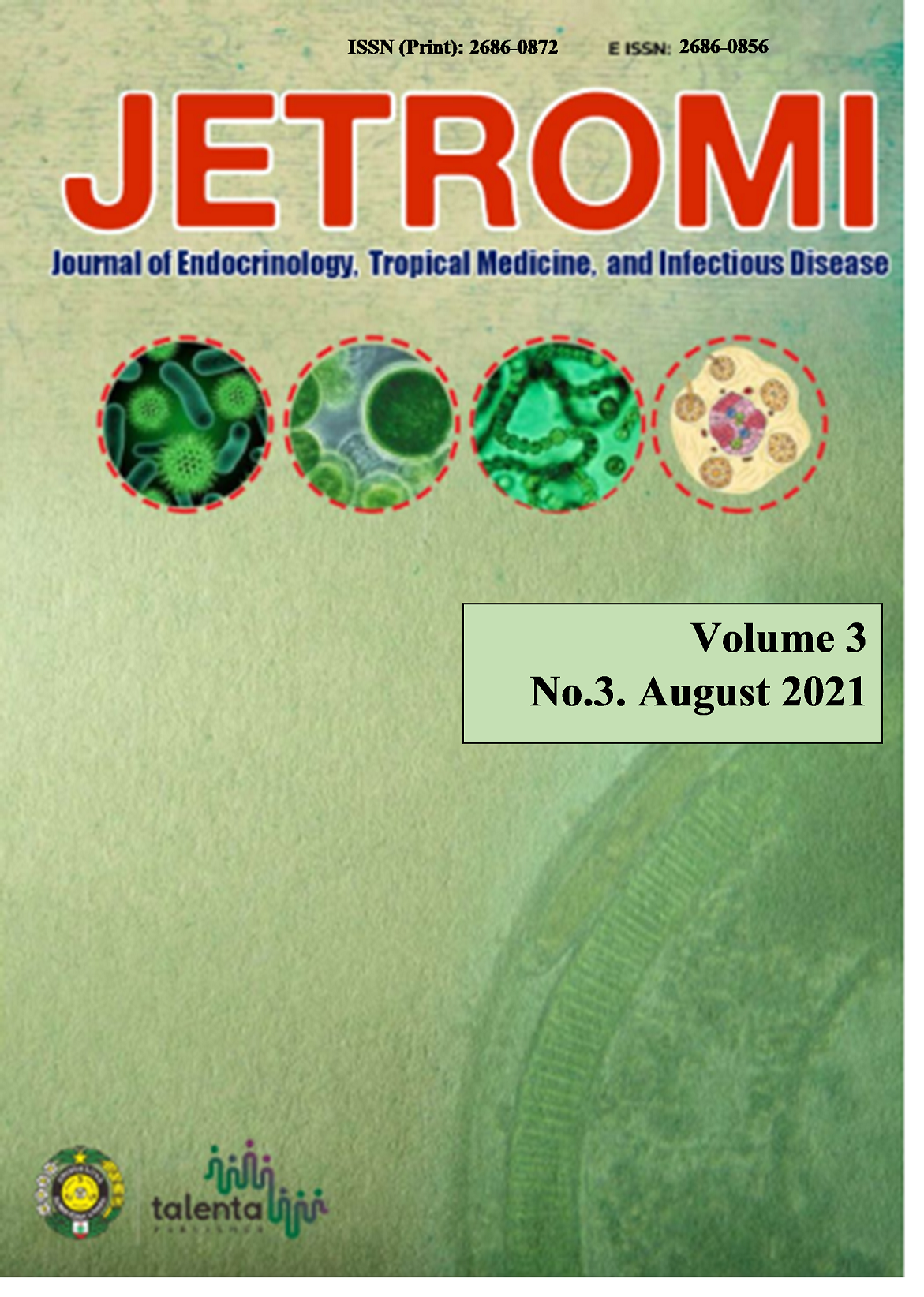Effects of Monosodium Glutamate on the Weight Gain of Experimental Rats
DOI:
https://doi.org/10.32734/jetromi.v3i3.6721Keywords:
Obesity, MSG, RatAbstract
Background: Obesity, as defined by the WHO is an abnormal fat consolidation or excessive fat deposit. Those excessive fat deposits have been known to be the risk factors for cardiovascular diseases. One such additive is known to improve the taste of the food is Monosodium Glutamate (MSG). The purpose of the study is to determine the effects of MSG on weight gain.
Methods: This is a simple experimental design with a pretest-posttest design. The study was conducted in the Animal House laboratories of the Faculty of Mathematics and Natural Sciences Universitas Sumatera Utara between October and November of 2019. The sample in this experiment is male Wistar rats aged 10-11 weeks that will be fed with standard animal feed mixed with MSG. There are 2 groups of rats (each group 16 rats), one group 1 (non-MSG), and group 2 (MSG). The rats were fed with animal feed (ad labium) for 31 days. The feed given every single day will be weighed and documented. The subcutaneous fat was taken from the abdominal and axillary regions.
Result. After 31 days of treatment, re-weighing of both groups of animals was carried out. The initial weight, final weight, total weight gain, total fat extracted and total feed consumed was not different significant (p>0,05).
Conclusion. The feeding of MSG for 31 days, did not have significant effects on weight gain. A longer time is needed for evaluation of MSG effect on weight gain
Downloads
Downloads
Published
Issue
Section
License
Copyright (c) 2021 Journal of Endocrinology, Tropical Medicine, and Infectious Disease (JETROMI)

This work is licensed under a Creative Commons Attribution-NonCommercial-ShareAlike 4.0 International License.
The Authors submitting a manuscript do so on the understanding that if accepted for publication, copyright of the article shall be assigned to Journal of Endocrinology, Tropical Medicine and Infectious Diseases (JETROMI).
Copyright encompasses exclusive rights to reproduce and deliver the article in all form and media. The reproduction of any part of this journal, its storage in databases and its transmission by any form or media, will be allowed only with a written permission from Journal of Endocrinology, Tropical Medicine and Infectious Diseases (JETROMI).








